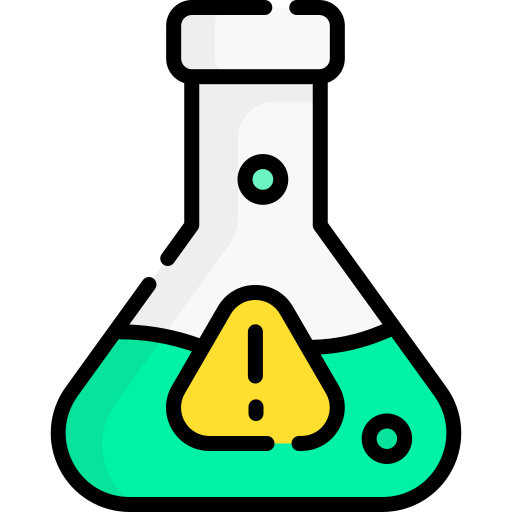ETHYLHEXYL METHOXYCINNAMATE
Functions: UV Absorber, UV Filter


Description
Ethylhexyl Methoxycinnamate is a clear liquid that is insoluble in water. Ethylhexyl Methoxycinnamate is used in the formulation of a wide variety of product types including sunscreens and makeup products that contain ingredients to protect the skin from the sun. In the United States, these products are regulated as Over-the-Counter (OTC) drugs.
References
- Carbone. 2010. In Vitro Effect of Octyl - Methoxycinnamate (OMC) on the Release of Gn-RH and Amino Acid Neurotransmitters by Hypothalamus of Adult Rats. Exp Clin Endocrinol Diabetes.
- EC (Environment Canada). 2008. Domestic Substances List Categorization. Canadian Environmental Protection Act (CEPA) Environmental Registry.
- EU (European Union)- Strategy for Endocrine Disrupters 2007. Commision on endocrin disruption requested by the European Parliament in 1998.
- European Commission. 2013. Cosing, the European Commission database with information on cosmetic substances and ingredients. Accessed on March 1, 2013 at http://ec.europa.eu/consumers/cosmetics/cosing/ .
- Hanson KM, Gratton E, Bardeen CJ. 2006. Sunscreen enhancement of UV-induced reactive oxygen species in the skin. Free Radic Biol Med 41(8): 1205-1212.
- IFRA (International Fragrance Assocication). 2010. IFRA Fragrance Ingredient List based on 2008 Use Survey. Accessed online 01/04/2010: http://www.ifraorg.org/Home/News/Latest-News/page.aspx/66?xf_itemId=43&xf_selectionDatapartId=25
- Janjua NR, Mogensen B, Andersson AM, Petersen JH, Henriksen M, Skakkebaek NE, et al. 2004. Systemic Absorption of the Sunscreens Benzophenone-3, Octyl-Methoxycinnamate, and 3-(4-Methyl-Benzylidene) Camphor after Whole-Body Topical Application and Reproductive Hormone Levels in Humans. Journal of Investigative Dermatology 123(1): 57-61.
- Klammer H, Schlecht C, Wuttke W et al. "Effects of a 5-day treatment with the UV-filter octyl-methoxycinnamate (OMC) on the function of the hypothalamo-pituitary-thyroid function in rats." Toxicology 2007; 238 (2-3):192-9.
- Klammer H, Schlecht C, Wuttke W, Schmutzler C, Gotthardt I, Köhrle J, Jarry H. "Effects of a 5-day treatment with the UV-filter octyl-methoxycinnamate (OMC) on the function of the hypothalamo-pituitary-thyroid function in rats." Toxicology. 2007 Sep 5;238(2-3):192-9.
- Klammer. 2005. Multi-organic risk assessment of estrogenic properties of octyl-methoxycinnamate in vivo A 5-day sub-acute pharmacodynamic study with ovariectomized rats. Toxicology. Nov 5;215(1-2):90-6
- Klinubol P, Asawanonda P, Wanichwecharungruang SP. Transdermal penetration of UV filters. Skin Pharmacol Physiol 2008; 21 (1):23-9.
- M.E. Balmer, H.R. Buser, M.D. Muller, T. Poiger. 2004. Occurrence of the organic UV-ï¬lter compounds BP-3, 4-MBC, EHMC, and OC in wastewater, surface waters, and in ï¬sh from Swiss lakes, Agroscope, Swiss Federal Research Station for Horticulture, Plant Protection Chemistry, CH-8820W’’Adenswil, Switzerland.
- NLM (National Library of Medicine). 2012. PubMed online scientific bibliography data. http://www.pubmed.gov.
- Pont AR, Charron AR, Brand RM. 2004. Active ingredients in sunscreens act as topical penetration enhancers for the herbicide 2,4-dichlorophenoxyacetic acid. Toxicol Appl Pharmacol 195(3): 348-354.
- Rodriguez E, Valbuena MC, Rey M, Porras de Quintana L. 2006. Causal agents of photoallergic contact dermatitis diagnosed in the national institute of dermatology of Colombia. Photodermatol Photoimmunol Photomed 22(4): 189-192.
- Schlumpf M, Kypke K, Vokt C, Birchler M, Durrer S, Faass O, et al. 2008. Endocrine Active UV Filters: Developmental Toxicity and Exposure Through Breast Milk. Chimia 62: 1-7.
- Schlumpf M, Schmid P, Durrer S, Conscience M, Maerkel K, Henseler M, et al. 2004. Endocrine activity and developmental toxicity of cosmetic UV filters--an update. Toxicology 205(1-2): 113-122.
- Schneider "Octyl methoxycinnamate: two generation reproduction toxicity in Wistar rats by dietary administration." Food Chem Toxicol. 2005 Jul;43(7):1083-92.
- Schneider S, Deckardt K, Hellwig J, Küttler K, Mellert W, Schulte S, van Ravenzwaay B. "Octyl methoxycinnamate: two generation reproduction toxicity in Wistar rats by dietary administration." Food Chem Toxicol. 2005 Jul;43(7):1083-92.
- Schneider. 2005. Octyl methoxycinnamate: two generation reproduction toxicity in Wistar rats by dietary administration. Food Chem Toxicol. 43(7):1083-92.
- Seidlova-Wuttke D, Christoffel J, Rimoldi G, Jarry H, Wuttke W. "Comparison of effects of estradiol with those of octylmethoxycinnamate and 4-methylbenzylidene camphor on fat tissue, lipids and pituitary hormones." Toxicol Appl Pharmacol. 2006 Jul 1;214(1):1-7.
- Szwarcfarb B, Carbone S, Reynoso R, Bollero G, Ponzo O, Moguilevsky J, Scacchi P. "Octyl-methoxycinnamate (OMC), an ultraviolet (UV) filter, alters LHRH and amino acid neurotransmitters release from hypothalamus of immature rats." Exp Clin Endocrinol Diabetes. 2008 Feb;116(2):94-8.
- {Allen, 1996}
- {Gupta, 1999; Potard, 2000; Benech-Kieffer, 2000}
- Carbone. 2010. In Vitro Effect of Octyl - Methoxycinnamate (OMC) on the Release of Gn-RH and Amino Acid Neurotransmitters by Hypothalamus of Adult Rats. Exp Clin Endocrinol Diabetes.
- EC (Environment Canada). 2008. Domestic Substances List Categorization. Canadian Environmental Protection Act (CEPA) Environmental Registry.
- EU (European Union)- Strategy for Endocrine Disrupters 2007. Commision on endocrin disruption requested by the European Parliament in 1998.
- European Commission. 2013. Cosing, the European Commission database with information on cosmetic substances and ingredients. Accessed on March 1, 2013 at http://ec.europa.eu/consumers/cosmetics/cosing/ .
- Hanson KM, Gratton E, Bardeen CJ. 2006. Sunscreen enhancement of UV-induced reactive oxygen species in the skin. Free Radic Biol Med 41(8): 1205-1212.
- IFRA (International Fragrance Assocication). 2010. IFRA Fragrance Ingredient List based on 2008 Use Survey. Accessed online 01/04/2010: http://www.ifraorg.org/Home/News/Latest-News/page.aspx/66?xf_itemId=43&xf_selectionDatapartId=25
- Janjua NR, Mogensen B, Andersson AM, Petersen JH, Henriksen M, Skakkebaek NE, et al. 2004. Systemic Absorption of the Sunscreens Benzophenone-3, Octyl-Methoxycinnamate, and 3-(4-Methyl-Benzylidene) Camphor after Whole-Body Topical Application and Reproductive Hormone Levels in Humans. Journal of Investigative Dermatology 123(1): 57-61.
- Klammer H, Schlecht C, Wuttke W et al. "Effects of a 5-day treatment with the UV-filter octyl-methoxycinnamate (OMC) on the function of the hypothalamo-pituitary-thyroid function in rats." Toxicology 2007; 238 (2-3):192-9.
- Klammer H, Schlecht C, Wuttke W, Schmutzler C, Gotthardt I, Köhrle J, Jarry H. "Effects of a 5-day treatment with the UV-filter octyl-methoxycinnamate (OMC) on the function of the hypothalamo-pituitary-thyroid function in rats." Toxicology. 2007 Sep 5;238(2-3):192-9.
- Klammer. 2005. Multi-organic risk assessment of estrogenic properties of octyl-methoxycinnamate in vivo A 5-day sub-acute pharmacodynamic study with ovariectomized rats. Toxicology. Nov 5;215(1-2):90-6
- Klinubol P, Asawanonda P, Wanichwecharungruang SP. Transdermal penetration of UV filters. Skin Pharmacol Physiol 2008; 21 (1):23-9.
- M.E. Balmer, H.R. Buser, M.D. Muller, T. Poiger. 2004. Occurrence of the organic UV-ï¬lter compounds BP-3, 4-MBC, EHMC, and OC in wastewater, surface waters, and in ï¬sh from Swiss lakes, Agroscope, Swiss Federal Research Station for Horticulture, Plant Protection Chemistry, CH-8820W’’Adenswil, Switzerland.
- NLM (National Library of Medicine). 2012. PubMed online scientific bibliography data. http://www.pubmed.gov.
- Pont AR, Charron AR, Brand RM. 2004. Active ingredients in sunscreens act as topical penetration enhancers for the herbicide 2,4-dichlorophenoxyacetic acid. Toxicol Appl Pharmacol 195(3): 348-354.
- Rodriguez E, Valbuena MC, Rey M, Porras de Quintana L. 2006. Causal agents of photoallergic contact dermatitis diagnosed in the national institute of dermatology of Colombia. Photodermatol Photoimmunol Photomed 22(4): 189-192.
- Schlumpf M, Kypke K, Vokt C, Birchler M, Durrer S, Faass O, et al. 2008. Endocrine Active UV Filters: Developmental Toxicity and Exposure Through Breast Milk. Chimia 62: 1-7.
- Schlumpf M, Schmid P, Durrer S, Conscience M, Maerkel K, Henseler M, et al. 2004. Endocrine activity and developmental toxicity of cosmetic UV filters--an update. Toxicology 205(1-2): 113-122.
- Schneider "Octyl methoxycinnamate: two generation reproduction toxicity in Wistar rats by dietary administration." Food Chem Toxicol. 2005 Jul;43(7):1083-92.
- Schneider S, Deckardt K, Hellwig J, Küttler K, Mellert W, Schulte S, van Ravenzwaay B. "Octyl methoxycinnamate: two generation reproduction toxicity in Wistar rats by dietary administration." Food Chem Toxicol. 2005 Jul;43(7):1083-92.
- Schneider. 2005. Octyl methoxycinnamate: two generation reproduction toxicity in Wistar rats by dietary administration. Food Chem Toxicol. 43(7):1083-92.
- Seidlova-Wuttke D, Christoffel J, Rimoldi G, Jarry H, Wuttke W. "Comparison of effects of estradiol with those of octylmethoxycinnamate and 4-methylbenzylidene camphor on fat tissue, lipids and pituitary hormones." Toxicol Appl Pharmacol. 2006 Jul 1;214(1):1-7.
- Szwarcfarb B, Carbone S, Reynoso R, Bollero G, Ponzo O, Moguilevsky J, Scacchi P. "Octyl-methoxycinnamate (OMC), an ultraviolet (UV) filter, alters LHRH and amino acid neurotransmitters release from hypothalamus of immature rats." Exp Clin Endocrinol Diabetes. 2008 Feb;116(2):94-8.
- {Allen, 1996}
- {Gupta, 1999; Potard, 2000; Benech-Kieffer, 2000}